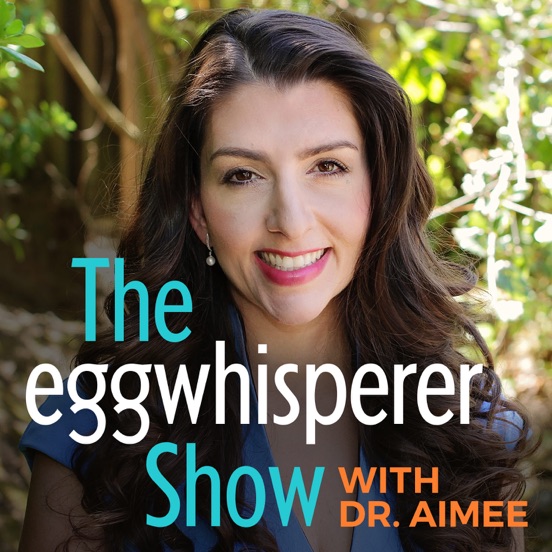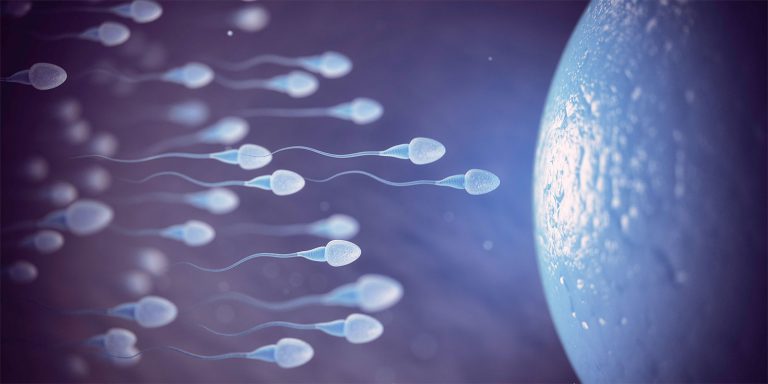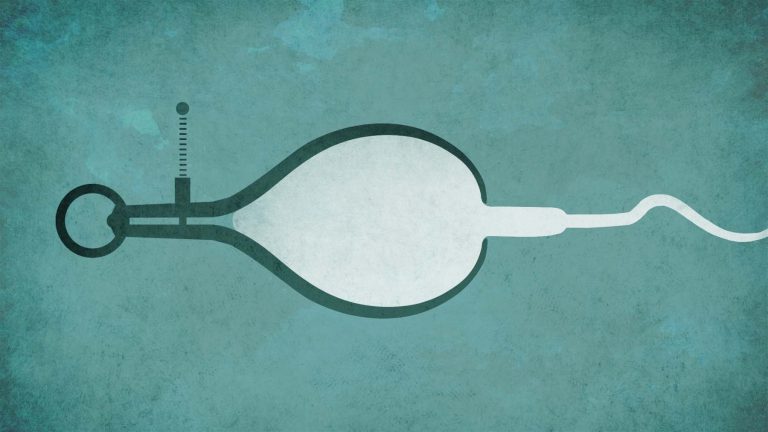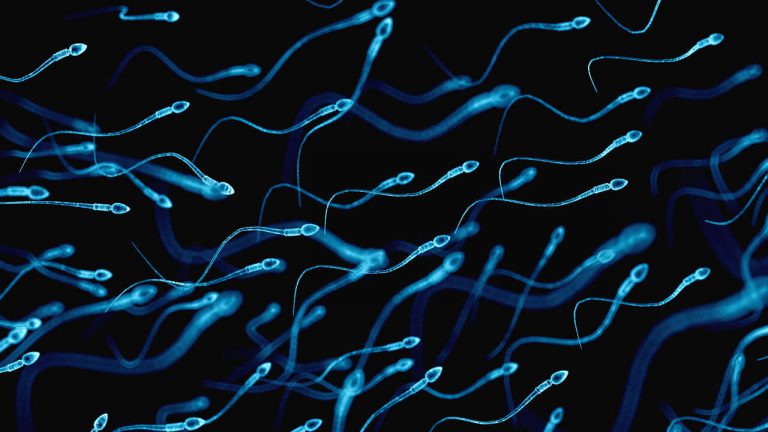Recently, our very own Kristin Brogaard sat down with world-renowned fertility expert, Dr. Aimee Eyvazzadeh “The Egg Whisperer” to discuss Sperm Health, Sperm Aging, and Male Fertility.
About Dr. Aimeee
In the nearly 20 years since she completed her medical training in 2001, Dr. Aimee has become well-known for her innovative approach to fertility care that begins with diagnosis before treatment.
You can find out more about Dr. Aimee by visiting her website, or following her on Instagram and Facebook.
Dr. Aimee: Welcome to today’s interview on male infertility and aging. I have a special guest on today’s show, Dr. Kristin Brogaard. Kristin has a PhD from Northwestern University in novel epigenetic technology that allowed for a more accurate understanding of the role of chromatin in the regulation of genes. She later supported the launch and growth of Arivale, a revolutionary new wellness company that combines cutting edge science, personalized data, and tailored coaching to help clients optimize wellness and avoid disease. She is now the chief operations officer of Path Fertility.
Dr. Aimee: Hi, Kristin. Welcome to The Egg Whisperer Show.
Dr. Kristin Brogaard: Hi. How are you, Aimee?
Dr. Aimee: I’m doing great. Thank you for coming on today. What inspired you to work in fertility?
Dr. Kristin Brogaard: That’s a great question. My answer really is two-fold. My co-founder and I started our company with the mission to use the technology that we have, which can be applied to lots of conditions, but the goal was for us to use it to reduce the pain and suffering that occurs with trial-and-error medicine.
Both my cofounder and I have very close family members who went through a horrible series of tests, procedures, treatments, were very sick, and ultimately we were not able to either diagnose and heal our loved ones, so we are very passionate about finding areas where we can help that helplessness that comes with trial-and-error medicine.
When discussing with friends and family and really digging into some of their experiences, fertility and infertility care kept coming up. Really digging into what they experienced, the invasive procedures, the years without a baby, the out-of-pocket expenses, and to ultimately end up with a diagnosis of unexplained infertility really felt like an area of trial-and-error medicine that we could explore.
Secondly, as an entrepreneur, we’re looking for areas where our technology can really improve a patient’s experience. When we dug into male infertility specifically, it was abundantly clear that there is a large area of growth where new technology could improve treatment plans, couples’ experiences, reduce time to pregnancy, and reduce out-of-pocket costs. We really felt like it was an opportunity where our technology could make a difference.
Dr. Aimee: Start by talking about that. I’d love for our audience to hear about exactly how Path Fertility can help with all of those things that you just mentioned.
Dr. Kristin Brogaard: What we do is we really focus on what’s called epigenetics. Rather than looking at just the DNA sequence in a cell, which is the same DNA sequence that you have in all of your cells, epigenetics is the actual modifications that sit on top of the DNA that tell genes to turn on and off and tell DNA what to do. You could compare it to your DNA as the hardware. You have the same DNA sequence in all of your cells, but it’s really the software, or the epigenetics on top of the DNA, that make your brain cell become a brain cell or a sperm cell become a sperm cell.
With our academic co-founders, we really have found an area where sperm epigenetics have been shown to say a lot about one’s fertility potential and how they are aging. In our first product, which is a sperm age test, we are analyzing how the epigenetics on the sperm DNA represent the aging of the sperm, because we know that as a man ages their fertility potential begins to decline. We actually provide a physician or a couple with true paternal age. Rather than just knowing how old you are chronologically by the calendar, we actually can tell you how old your sperm are, which is an important component when discussing family planning.
Dr. Aimee: I feel like if you were to open up People Magazine, you may not know that, because a lot of the education people get can be from online resources and magazine articles. You look at Mick Jagger, for example, who fathered a child at 73. A lot of us just think that it doesn’t matter, you’re good to go no matter what the age of the guy.
In your opinion, when should couples consider looking at the male side of the equation? When should they do the Path Fertility test, whether they’re having trouble conceiving or not?
Dr. Kristin Brogaard: I think the oldest man to have a child has been 96. I can definitely understand why people would believe that men can just have babies forever, but the reality is men do have biological clocks. They’re less aggressive or abrupt compared to a female’s biological clock where a depleted egg reserve or menopause means you really don’t have the ability to have kids.
What people don’t really look at with men is that older men and aging men have increased time to pregnancy, you have lower pregnancy naturally, or artificial insemination, decreased IVF success rates, increased miscarriages, increased stillbirths, and also a potential increase in having conditions in your offspring. There have been links to cancer risks, psychiatric disorders, metabolic disorders, and behavior and social function disorders. So, there is absolutely a biological clock for men.
It’s important that couples consider both the female component and the male component when looking at fertility care. 50% of infertility is due to male factors. Sadly, right now in our medical field, most of those procedures are focused on the woman. There has been a lack of research and effort on the male side.
My suggestion would be if you’re struggling to have a baby and you have any concerns, the sooner you can reach out to a physician the better . Time is critical for both the male and the female. Then for some people, it takes a while. If you have any concerns, and it’s both the male and female coming to the physician, I would say sooner rather than later.
Dr. Aimee: Another way to think about it is “test, don’t guess.” Just get tested.
Dr. Kristin Brogaard: Exactly. I love that.
Dr. Aimee: My follow up to that is it’s always nice to have sperm on ice.
Dr. Kristin Brogaard: Absolutely.
Dr. Aimee: It’s a lot easier than getting eggs on ice, that’s for sure. How does the testosterone level play a role in all of this?
Dr. Kristin Brogaard: Testosterone is so fascinating to me. Definitely sexual function decreases as a man ages and that is linked to decreases in testosterone. As a man ages, the actual cells that produce the testosterone, the count of those cells decreases. The total testosterone in the body decreases and your hormonal organs are changing and getting older, so there is a decrease as a man ages.
Testosterone replacement therapy is very common now where people take testosterone to get back that sexual function. That absolutely works, you have better erectile function, but it actually stops spermatogenesis. Men who are taking testosterone, even though they have higher sexual function, the ability to have kids actually decreases.
So, if you’re thinking about going on testosterone as you’re aging, it is a conversation with your physician, but there are other hormones that you can supplement with testosterone treatment to actually bring that sperm creation back. But testosterone replacement on its own will actually increase your infertility concerns.
Dr. Aimee: Yes. It’s a great birth control pill for men, let me tell you.
Dr. Aimee: I love on your site that you describe your test as one part hard science and two parts supportive friend. Can you explain the hard science behind your test?
Dr. Kristin Brogaard: Absolutely. I absolutely love the science. This is my background. We have extremely great data and several peer-reviewed publications on looking at the epigenetics of sperm DNA as men age. We actually have time points of collecting sperm as a man ages.
What we’ve found is that the epigenetic signature on sperm DNA decreases, so you actually have less epigenetic signatures with age. We have it to the point where we can in most cases calculate a man’s chronological or calendar age by just looking at their sperm DNA. We have a very robust algorithm to calculate how DNA epigenetics in sperm cells relates to age.
What we found which is really fascinating is that certain lifestyle characteristics in some men actually have accelerated aging. A man can be 36 years old, but have sperm that is more characteristic of a 42 or 45 year old man. Having this as the true paternal age when trying to have a baby is an important conversation, because we know that men who are older have longer time to pregnancy. So, it’s a conversation to have.
We also know that these epigenetics on sperm DNA can actually be changed over time. We know that smoking, BMI, and diet can actually accelerate your sperm age. We have shown in certain models that with removing those types of lifestyles you can actually bring your sperm epigenetics back to normal.
Dr. Aimee: Beautiful. I know that this is a little bit controversial, because I don’t think there is an agreed upon age in the scientific community, but based on your research, what would you call advanced paternal age? At what age would you say this is the age, and above this, where you’re going to see more difficulty getting pregnant, time to pregnancy, and more complications?
Dr. Kristin Brogaard: I think that your advanced paternal age is actually a very multifaceted question. I think you have to bring in factors, you have your chronological age that is important, but also lifestyle, behavior, mental health, current diseases, history of diseases, it all comes in and plays into what would be considered too old.
There’s hard data about when sperm count decreases. In the early-40s sperm count decreases, changes in testosterone start happening in the 40s. I don’t think there’s one answer for what’s advanced. There is definitely data of when things change, but it would be a different answer with an extremely healthy person versus someone who has chosen less healthy lifestyle habits.
Dr. Aimee: Can you explain how this test is actually done?
Dr. Kristin Brogaard: It is an at-home specimen collection kit that is ordered online and it’s available through our website, pathfertility.com. We send a kit that has a sperm collection cup in it with instructions and prepaid shipping. The client collects a semen sample in the cup in the privacy of their own home. What’s really cool about epigenetics is that it’s stable at room temperature, so you can actually put the cup in the box and put it in the package and ship it back to us without having to worry about temperature control.
Once it’s shipped back to us, we get it in the lab. We do a sperm count and then we analyze the epigenetics on the DNA.
Dr. Aimee: Beautiful. How long can someone expect to wait for results to come back?
Dr. Kristin Brogaard: Right now, we’re at 10 days.
Dr. Aimee: Beautiful. How can you reassure someone who might be a little bit nervous, maybe slightly paranoid, about putting their sperm in a cup and putting it in the mail? I tell my patients no one is going to take your sperm, trust me, no one is going to open up that cup, no one is going to use your sperm for an insemination. Just remove that kind of thought process. How can you reassure people?
Dr. Kristin Brogaard: That’s a great question. One, sperm that will be sent at room temperature definitely could not be used for anything procedural, so that is absolutely not the case. We send it Priority Mail directly to our lab, which is a certified lab for doing this type of processing.
Then if there are any concerns about DNA and privacy, we are only looking at the modifications on the DNA, we’re not sequencing one’s DNA at all. There’s actually no possibility of using it for an insemination or to have any privacy concerns, because we’re not looking at the DNA sequence itself.
Dr. Aimee: You’re not selling data to Facebook.
Dr. Kristin Brogaard: No. Absolutely not.
Dr. Aimee: You mentioned something near and dear to my heart, because I try to help patients create a roadmap for their future family and try to create a plan. How can your test help people achieve their family size goals?
Dr. Kristin Brogaard: Really it’s the combination of a 360-degree view of your health, lifestyle, and goals that we try to put together in a packet. In addition to providing a sample, you also provide some detailed information about your lifestyle, what you want, how many kids you want, what your exercise habits are, what your diet habits are.
Together, based completely on scientific publications, we go through what your lifestyle is, tell you in a nice report where that fits in the current recommendations to maximize fertility based on scientific publications. Then additionally we reportwhere your sperm age is and where your chronological age is, and if there are any concerns there.
In the case where you say you want to have three kids and you’re 36 years old, we give the standard recommendations. You want to wait at least 18 months before trying to have a second kid. So, what is the absolute oldest dad you want to be? Then you need to work back from there. So, we provide some education on that.
Dr. Aimee: How often should someone revisit or redo the test? If they’ve done it once and they’re making lifestyle changes, when would be a good time point for them to order it again?
Dr. Kristin Brogaard: Your entire sperm gets restored after three months. Spermatogenesis is what that’s called. After three months you have a totally new supply of sperm. What we do know is that epigenetics change pretty quickly with lifestyle and behavior changes. We’re recommending three months to maximize any changes that we’ll see. Then with submission of a new sample, what we would do is actually compare it to your previous results as well, and we include that in the report.
Dr. Aimee: That’s great. I wish I could do something for women, ship you a cup, you put some eggs in a cup, and I could give you this information. Why can’t we do it for eggs?
Dr. Kristin Brogaard: No one has done that yet. An egg is much more complex than sperm. Epigenetics is very sensitive to cell type. What sperm is wonderful for is that you can get a lot of a single cell type in a semen sample. Right now, we’re not there with eggs, but it is something we absolutely want to explore.
Dr. Aimee: I would love for some blood test better than the FSH, estradiol, major follicle count, and your age to tell me what’s going on with you.
Dr. Kristin Brogaard: Wouldn’t that be great?
Dr. Aimee: If there were a test like that, it would be great. Where can someone find the test?
Dr. Kristin Brogaard: If you go to our website at PathFertility.com, you can purchase a kit there. For all The Egg Whisperer listeners, we actually have a special link at PathFertility.com/eggwhisperer and you can get a discount.
Dr. Aimee: You guys know that I just bring people on that inspire me and hopefully can inspire you guys to build the healthiest family that you possibly can. Thank you, Kristin. Thank you for joining us today. Thank you for sharing all of your wisdom. Thank you for trying to make lives better for patients.
Dr. Kristin Brogaard: Thank you, Aimee, for everything you do for your patients.
Dr. Aimee: Thank you. If you’re interested in learning more about fertility treatments, including IVF, go to EggWhispererSchool.com and join me as I teach my next class. Have a great day.








